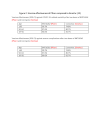Lessons learnt from COVID-19 to reduce mortality and morbidity in the Global South: addressing global vaccine equity for future pandemics
- PMID: 38167259
- PMCID: PMC10773420
- DOI: 10.1136/bmjgh-2023-013680
Lessons learnt from COVID-19 to reduce mortality and morbidity in the Global South: addressing global vaccine equity for future pandemics
Abstract
COVID-19, which killed more than 6 million people, will not be the last pandemic. Vaccines are key to preventing and ending pandemics. Therefore, it is critical to move now, before the next pandemic, towards global vaccine equity with shared goals, intermediate steps and long-term advocacy goals. Scientific integrity, ethical development, transparency, accountability and communication are critical. Countries can draw on lessons learnt from their response to the HIV pandemics, which has been at the vanguard of ensuring equitable access to rights-based services, to create shared goals and engage communities to increase access to and delivery of safe, quality vaccines. Access can be increased by: fostering the spread of mRNA intellectual property (IP) rights, with mRNA vaccine manufacturing on more continents; creating price transparency for vaccines; creating easily understandable, accessible and transparent data on vaccines; creating demand for a new international legal framework that allows IP rights to be waived quickly once a global pandemic is identified; and drawing on scientific expertise from around the world. Delivery can be improved by: creating strong public health systems that can deliver vaccines through the lifespan; creating or strengthening national regulatory agencies and independent national scientific advisory committees for vaccines; disseminating information from reliable, transparent national and subnational surveillance systems; improving global understanding that as more scientific data become available, this may result in changes to public health guidance; prioritising access to vaccines based on scientific criteria during an epidemic; and developing strategies to vaccinate those at highest risk with available vaccines.
Keywords: COVID-19; Vaccines.
© Author(s) (or their employer(s)) 2024. Re-use permitted under CC BY-NC. No commercial re-use. See rights and permissions. Published by BMJ.
Conflict of interest statement
Competing interests: None declared.
Figures
Similar articles
-
The Future of Epidemic and Pandemic Vaccines to Serve Global Public Health Needs.Vaccines (Basel). 2023 Mar 17;11(3):690. doi: 10.3390/vaccines11030690. Vaccines (Basel). 2023. PMID: 36992275 Free PMC article. Review.
-
Global pandemic preparedness: learning from the COVID-19 vaccine development and distribution.Expert Rev Vaccines. 2024 Jan-Dec;23(1):761-772. doi: 10.1080/14760584.2024.2395546. Epub 2024 Aug 30. Expert Rev Vaccines. 2024. PMID: 39167221 Review.
-
Factors, enablers and challenges for COVID-19 vaccine development.BMJ Glob Health. 2023 Jun;8(6):e011879. doi: 10.1136/bmjgh-2023-011879. BMJ Glob Health. 2023. PMID: 37277195 Free PMC article. Review.
-
Pandemic preparedness and response: beyond the Access to COVID-19 Tools Accelerator.BMJ Glob Health. 2023 Jan;8(1):e010615. doi: 10.1136/bmjgh-2022-010615. BMJ Glob Health. 2023. PMID: 36650015 Free PMC article. Review.
-
Which roads lead to access? A global landscape of six COVID-19 vaccine innovation models.Global Health. 2024 Mar 26;20(1):25. doi: 10.1186/s12992-024-01017-z. Global Health. 2024. PMID: 38532484 Free PMC article.
Cited by
-
Prognostic Utility of dNLR, ALRI, APRI, and SII in COVID-19 Patients with Diabetes: A Cross-Sectional Study.Diagnostics (Basel). 2024 Aug 4;14(15):1685. doi: 10.3390/diagnostics14151685. Diagnostics (Basel). 2024. PMID: 39125561 Free PMC article.
-
Pandemic paradox: How the COVID-19 crisis transformed vaccine hesitancy into a two-edged sword.Hum Vaccin Immunother. 2025 Dec;21(1):2543167. doi: 10.1080/21645515.2025.2543167. Epub 2025 Aug 12. Hum Vaccin Immunother. 2025. PMID: 40791124 Free PMC article.
References
-
- Johns Hopkins Coronavirus Resource Center . Johns Hopkins University and medicine [Internet]. 2023. Available: https://coronavirus.jhu.edu/
-
- National Academies of Sciences and . Toward a post-pandemic world: lessons from COVID-19 for now and the future. Ashby E, Biffl C, Snair M, eds. Proceedings of a Workshop [Internet]; Washington, DC: The National Academies Press, 2022. Available: https://nap.nationalacademies.org/catalog/26556/toward-a-post-pandemic-w... - PubMed
-
- Ahmad FB, Anderson RN, Cisewski JA, et al. . Vital Statistics rapid release. 2020. Available: https://www.cdc.gov/nchs/products/index.htm
Publication types
MeSH terms
Substances
LinkOut - more resources
Full Text Sources
Medical


